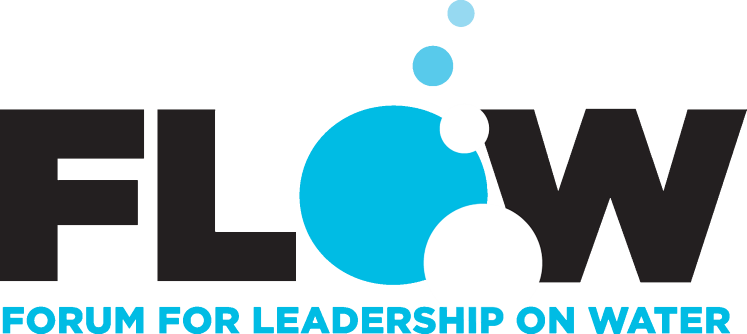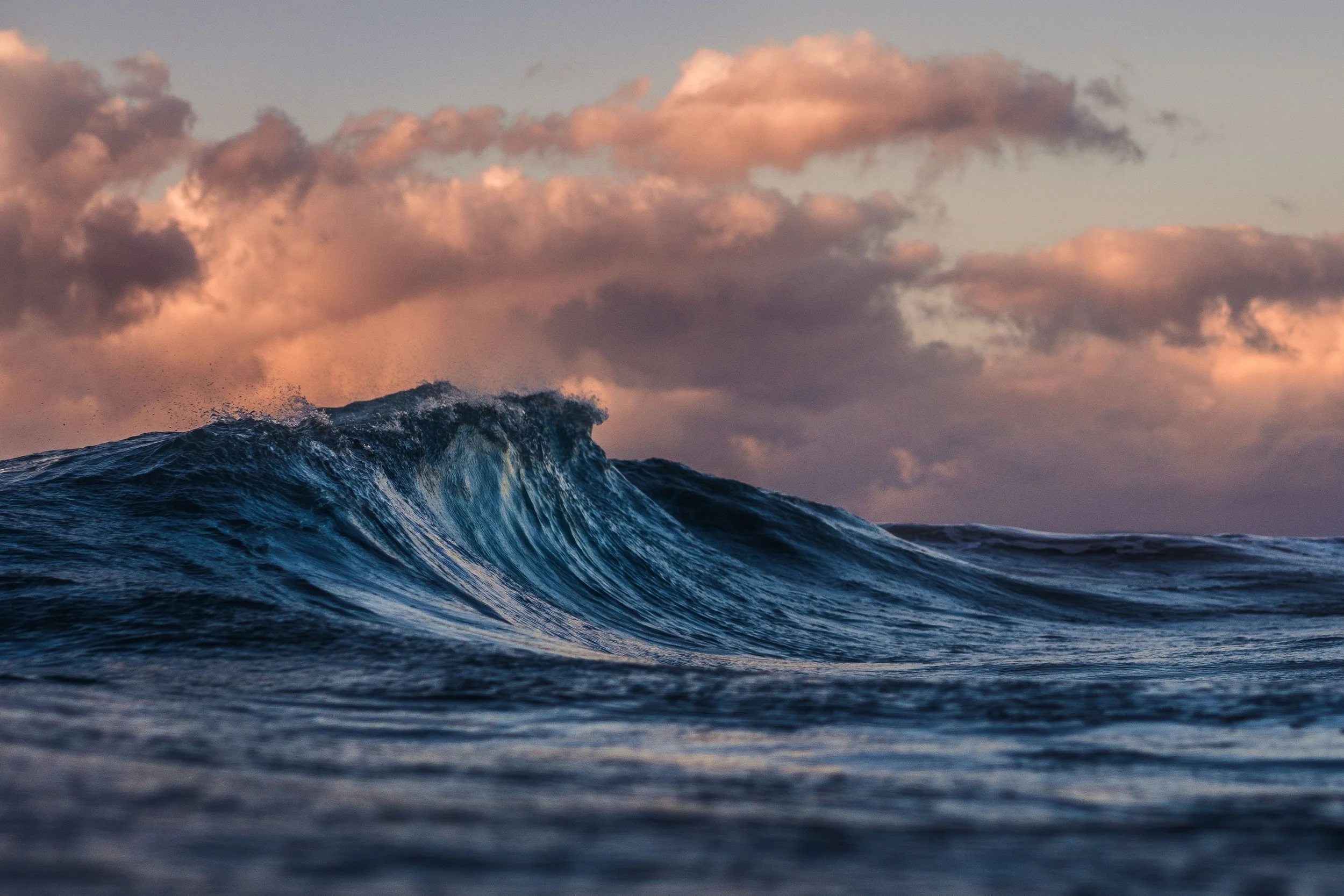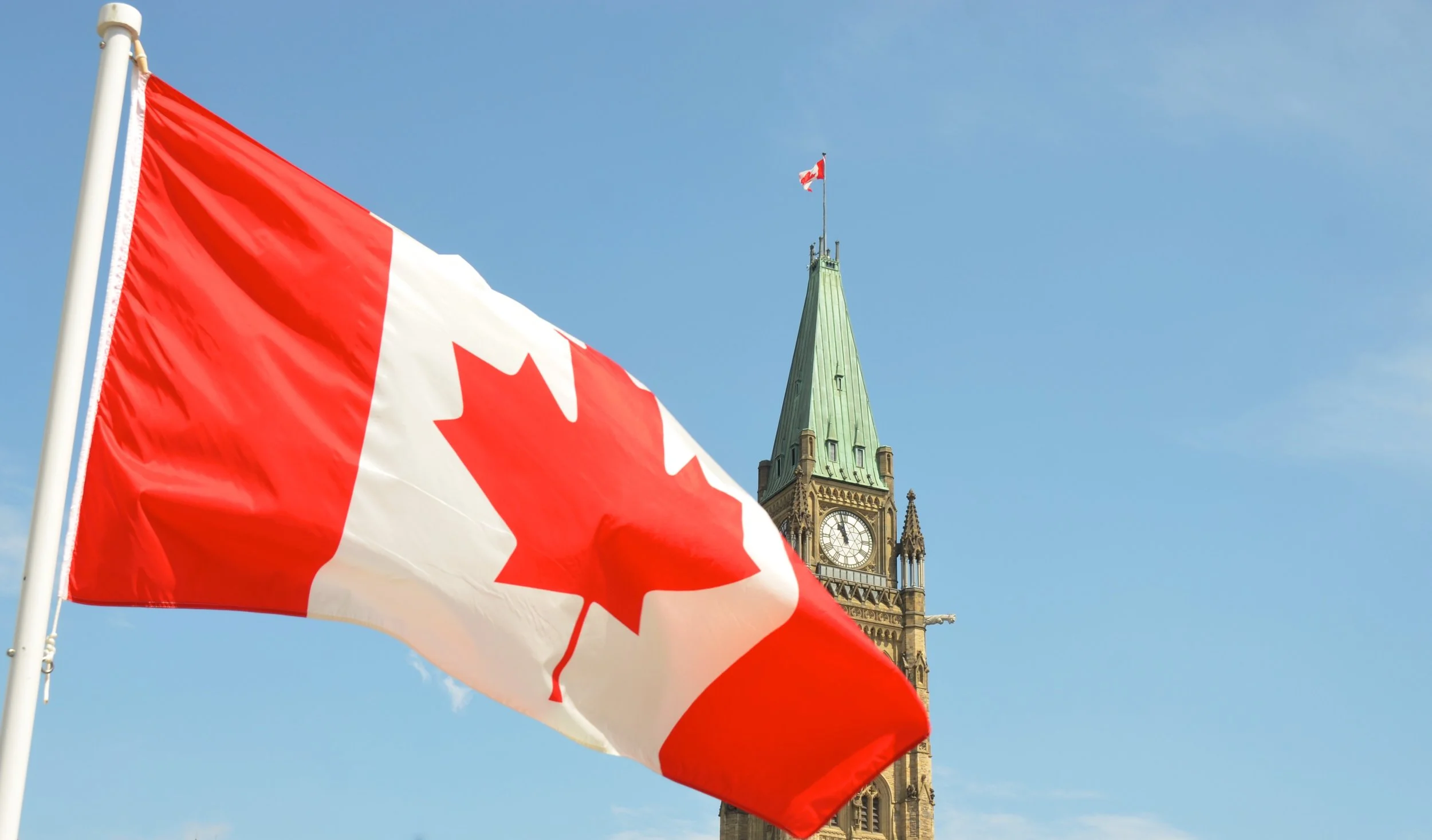-

Research
FLOW provides research and insider information on the greatest challenges facing freshwater resources in Canada. Working alongside research institutions, think tanks, policymakers and other leaders we produce high-level reports for leaders across the environmental sector.
-

Policy
To battle climate change and protect freshwater, we need to create strong, meaningful policies across Canada. We work alongside government leaders at all levels, to influence, create and even write strong policy for a sustainable, secure freshwater future in Canada.
-

Collaboration
Working across sectors with government, academia, private industry, non-profits and science, FLOW seeks to unite freshwater stakeholders. See such partnerships the Canadian Coalition for Healthy Waters and and joint proposal: The Five Foundational Pillars.
Help Us Create a Better Freshwater Future
FLOW’s work is completely funded by grants, in-kind donations and support from water champions like you. Your donations will allow FLOW to continue our work to shape a better water future in Canada.
Co-produced by the Forum for Leadership on Water, Massey College (University of Toronto) and the United Nations University Institute for Water, Environment and Health. This report outlines the discussions had during the September Symposium on Freshwater hosted by FLOW and Massey College which brought together water experts from across Canada to discuss the future of freshwater governance, legislation and financing in Canada.
December, 2023
In October 2023, the Standing Committee on Environment and Sustainable Development began the Freshwater Study. Over the course of approximately 15 sessions, the committee (made up of all sitting Federal Parties) will hear from witnesses across interests, locations and disciplines to better understand the state of freshwater in Canada. Following this they will produce a report. This submission consists of FLOW’s insights and expertise to the needs for a sustainable water future.
French Translation
November, 2023
Prepared for the Canadian Coalition of Healthy Waters, where FLOW sits on the steering committee, this resource outlines the impressive facts and figures of economic opportunity via freshwater investment. From a high return-on-investment (ROI), to thousands of jobs, and national security, explore the outcomes of investing in freshwater in Canada.
November, 2022
One-pager to understand and identify the major opportunities for freshwater in Canada. Notably the Canada Water Agency, Canada Water Act and Freshwater Action Plan ($1 billion federal investment in water). Notably includes progress tracker on Federal government freshwater action and helpful resources for more information.
November, 2022
Following the release of the Canadian 2022 Federal Budget, FLOW wrote an open letter to Prime Minister Trudeau to adequately address the water crisis with adequate resources and urgency. Sent directly to Prime Minister Trudeau, alongside Minister of Environment Steven Guilbeault and Minister of Finance Chrystia Freeland, this was also released to the wider public and media outlets.
April , 2022
FLOW recognizes that many people do not have the time to read through party platforms to understand the individual party’s takes on freshwater policy. To help with this, FLOW has gone through the official party platform documents and condensed the information as a resource to interested readers.
This document does not contain any analysis on the platforms but should be seen merely as a resource to inform yourself about platform commitments.
September , 2021
FLOW joined the Canadian Coalition for Healthy Waters (CCHW) in 2020 following our combined efforts to create the Five Foundational Pillars for the Canada Water Agency.
The Coalition advocates for federal government leadership around freshwater policy, funding, and capacity-building, and supports legislation, that protect and restore healthy waters across the country to ensure that we are building a water-secure, climate resilient Canada for future generations.
Water security is a global challenge. Canada has an opportunity to be a leader in this space by safeguarding our own waters, working with our American neighbour to ensure effective transboundary management, and exporting our water expertise and innovations to other parts of the world. We cannot fulfill this role without a robust and modern legislative framework.
This brief identifies 13 key priorities for renewing the Canada Water Act, categorized into three focus areas: scope, governance, and water management. These priorities will bring the Act into the 21st century and ensure it reflects our new freshwater reality.
As FLOW and our partners have stated in previous work, “it is no longer desirable – or even possible – to maintain the status quo in terms of water management and governance in Canada”. Our country faces serious water challenges that are rapidly intensifying due to climate change. Strong federal leadership is needed to address these challenges and ensure long-term water security for all Canadians. These reforms cannot wait – the urgency of the response must match the urgency of the moment.
The priorities outlined in this submission are seven of the most important freshwater policy priorities facing our country today. The federal government has the authority and responsibility to address each of them, and they can do so via the actions we have identified.
May 2021
A new Canada Water Agency is a tremendous opportunity to rethink the way we manage and govern fresh water across the country. In response to Environment and Climate Change Canada's request for input on the development of the Agency, FLOW, in partnership with Our Living Waters, co-drafted a collective submission with water organizations from across the country. The submission, which was endorsed by individuals representing 51 organizations, calls upon the government to commit the resources, effort, and capacity needed to ensure that the Agency is established without delay and is positioned to affect meaningful change.
March 2021
Environmental flows are critical to fish and all aquatic life, widely recognized by scientists as the ‘master variable’ for ensuring the health of freshwater ecosystems. This brief makes the case for implementing regulations under the Fisheries Act to strengthen and clarify the federal role in ensuring the flows needed for fish passage and protection of fish and fish habitat across Canada. New regulations are also an opportunity to enhance collaboration with provincial/ territorial and Indigenous governments by developing regulations that respect shared jurisdiction over water and aquatic ecosystems. Regulations will achieve tangible outcomes in watersheds across the country by ensuring that protections for fish no longer fall through the cracks of shared water management systems.
January 2021
Canada is facing new and intensifying water challenges in the 21st century that demonstrate the need for a new approach to freshwater management. Addressing these challenges and ensuring that Canada’s waters are healthy, sustainable, and resilient to climate change requires modernized federal freshwater leadership. This policy brief makes the case that establishing a Canada Water Agency by November 2020 should be the first step of a broader program of reforms.
July 2020
This white paper was prepared by the Water Security for Canadians Initiative, a collaboration of water science and policy experts who are working together to advance solutions to Canada’s emerging water crisis. The paper was developed as a contribution to ongoing dialogue regarding the federal government’s commitment to establish a Canada Water Agency and is intended to generate discussion and solicit feedback from across the water community.
The paper proposes a two-pronged approach to modernize federal freshwater leadership: institutional and legislative reform. Establishment of a robust Canada Water Agency is an important step toward institutional reform. Legislative reform must begin with renewal of the Canada Water Act, the federal government’s primary freshwater legislation. These two processes should be undertaken without delay to prepare the country for the increasingly complex water challenges of the 21st century.
May 2020
Canada is in the midst of an emerging water crisis. Climate change is bringing more frequent and extreme flood and drought, while pollution and other pressures on rivers, lakes and wetlands are closing beaches, compromising drinking water supplies, putting fish and other species at risk, and undermining the health of our globally significant ecosystems. To confront these challenges, a more integrated approach to planning is needed. Importantly, because these waters cut across jurisdictional boundaries, rights and responsibilities, an integrated approach requires a meaningful federal role.
April 2019
In 2016, the Government of Canada put forward a 10 year, $180 billion infrastructure plan. This plan presented an unparalleled opportunity to chart the course for Canada’s next generation of urban water infrastructure. According to the 2016 Canadian Municipal Infrastructure Report Card, 35% of the country’s wastewater infrastructure and 29% of drinking water infrastructure was in ‘fair to very poor condition’. At the time, the price tag to address the backlog of repairs and upgrades to municipal water infrastructure in Canada was estimated at $88.5 billion
January 2017
Transcending Boundaries, a joint project of FLOW and the Walter and Duncan Gordon Foundation, demonstrates what can be achieved through cooperative transboundary water management and identifies concepts that can be applied elsewhere in Canada and around the world. The guidebook functions as a tool to help citizens understand and participate in both the specific Bilateral Agreement and the broader Mackenzie River Basin Master Agreement. This is the key to both the success of the Agreements and ultimately in the health of the Mackenzie River Basin.
2016
The Great Lakes fishery is worth more than $7 billion annually and supports more than 75,000 jobs. Canadians spend $443 million per year on the recreational fishery in the Great Lakes, while in Ontario alone the commercial fishery contributes $350 million to the province’s GDP. In 2016, the Government of Canada reviewed the Fisheries Act with the goal of restoring lost protections and introducing modern safeguards to the legislation. FLOW took this opportunity to commission Dr. Anastasia Lintner of Lintner Law to prepare this brief, which outlines how a renewed Fisheries Act could help ensure protection of fish and fish habitat and sustainable fisheries in the Great Lakes-St. Lawrence River ecosystem. The brief was endorsed by eleven Great Lakes non-government organizations, including four US-based groups, and submitted to the House of Commons Standing Committee on Fisheries and Oceans in November 2016.
November 2016
In 2016, the House of Commons Standing Committee on Fisheries and Oceans was tasked with reviewing changes to the Fisheries Act as part of the Government of Canada’s broader efforts to restore lost protections and introduce modern safeguards to the legislation. FLOW partnered with West Coast Environmental Law (WCEL) to produce this brief, which makes the case that the current provisions in the Fisheries Act are scientifically suspect and legally toothless. The recommendations in the report were presented to the Standing Committee in November 2016 by Linda Nowlan, Staff Counsel with WCEL and former FLOW member.
November 2016
Regulation of toxic and harmful substances – which is a key focus of the Canadian Environmental Assessment Act, 1999 (CEPA) – has clear and significant implications for the safety of drinking water and the health of aquatic environments. While CEPA very much represented the state-of the art when it was devised in 1988 and refined in 1999, FLOW does not believe the underlying approach in the Act will be effective in meeting its purpose of preventing pollution and protecting human health and the environment over the coming decades. In this policy brief, submitted to the House of Commons Standing Committee on Environment and Sustainable Development, FLOW proposes recommendations for improving the regulation of toxic and harmful substances in Canada.
September 2016
Canada’s approach to sustainable development has significant implications for the health of our fresh water. FLOW is pleased to share our submission to the Government of Canada on its draft strategy Planning for a Sustainable Future: A Federal Sustainable Development Strategy for Canada. Our comments draw on the substantial experience of FLOW members to provide recommendations on the public policies that impact the health and sustainability of Canada’s fresh water, and the people, economies, and ecosystems that depend on it.
November 2016
Canada’s water governance scheme is fractured, inequitable, unaccountable, and weak. The failure to engage Indigenous peoples in water governance is particularly problematic, because their participation in a nation-to-nation relationship is a precondition to good water governance. By failing to accommodate the basic truth of our collective reliance on water, Canada’s water governance system is ultimately ineffective and unsustainable.
This paper, commissioned by FLOW, explores the state of participation of Indigenous peoples in water governance in Canada. Examples of Canadian and international water regimes that are inclusive of Indigenous peoples are examined and, drawing from these examples, a series of options for a new regime—one that fosters good water governance by respecting our common need for healthy water—are presented.
June 2014
This analysis, led by FLOW's Jim Bruce for the Grand River Conservation Authority with support from Freshwater Future, seeks to quantify trends due to climate change effects on runoff events and phosphorus loads. Also considered are the likely future effects, due to increased frequency of heavy rain events. Some remedial actions to reduce the water quality impacts on the Grand River, Canada’s largest tributary to Lake Erie are outlined.
September 2013
This report is a synthesis of themes, perspectives, and information from FLOW's fall 2011 cross-Canada water discussion series. It reports on what FLOW member Bob Sandford heard from panellists and audiences during the 16-city tour, illustrating the interrelatedness of many water issues common to all Canadians and documenting the growing need for solutions that transcend chronic jurisdictional challenges. It also explores the Northwest Territories’ groundbreaking new water stewardship strategy as a model for water policy reform in the rest of Canada. The report was co-published by the POLIS Project on Ecological Governance and the Adaptation to Climate Change Team (ACT) at Simon Fraser University.
May 2012
Written by Emilie Lagace during her Gordon Water Policy Fellowship with FLOW, this briefing note is based on the results of an extensive literature review and 40 interviews in Canada and Europe. This note summarizes lessons from the EU Water Framework Directive that could be heeded by Canada to address water policy fragmentation and low levels of environmental performance. The study concludes that there are tangible benefits to collaborative water governance in the EU and that comparable benefits could be achieved in Canada with a similar approach. The full Water Policy Fellowship report can be downloaded here.
March 2011
This briefing note provides recommendations to strengthen Bill S-11, ‘An Act Respecting the Safety of Drinking Water on First Nation Lands'. FLOW welcomed the intent of the Bill to improve the health and safety of First Nations through development of regulations that govern drinking water and wastewater treatment on First Nations’ lands, but did not support the legislation as tabled. This brief recommends amendments to ensure the Bill protects Aboriginal and treaty rights and commits to a cooperative framework between First Nations jurisdictions and the Government of Canada in the establishment of a safe drinking water regime.
October 2010
In this report, FLOW, Ecojustice and the Centre for Indigenous Environment Resources examine the the status of drinking water quality in Canada. The report reveals that certain communities in Canada – specifically rural and First Nations – are vulnerable to drinking water contamination. Risks are attributed to inadequate infrastructure, patchwork provincial laws, and a lack of federal drinking water standards. The report calls for world-class, enforceable drinking water standards that are consistent across Canada, resources for First Nations drinking water services, and transparent reporting on the state of drinking water systems across the country.
March 2010
Published in partnership with the Canadian Water and Wastewater Association, the Alliance for Water Efficiency, and the POLIS Water Sustainability Project, this report proposes an alternative approach to water infrastructure investment that has the potential to make Canada a global leader in 21st century solutions to water infrastructure problems. These solutions can be deployed quickly and broadly, creating jobs and stimulating the economy much faster than traditional water infrastructure projects. They include repairing and renewing existing water infrastructure, restoring green infrastructure, and conserving water and energy.
December 2008
This report was published by the Gordon Water Group of Concerned Scientists and Citizens, a group of researchers, experts, and citizens who came together out of deep concern for Canada’s escalating water crisis. The Blueprint built on mounting calls from a diverse range of groups and sectors for renewed federal action on water. It presents twenty-five recommended actions, organized under seven priority areas, to re-ignite the federal government’s role in sustaining our most precious resource and to help guide Canada to a sustainable freshwater future. This is the report from which FLOW emerged as a permanent initiative.
October 2007




























